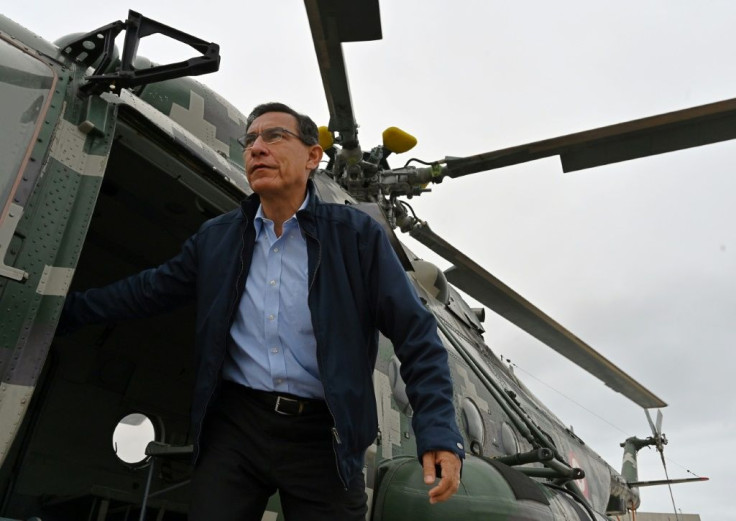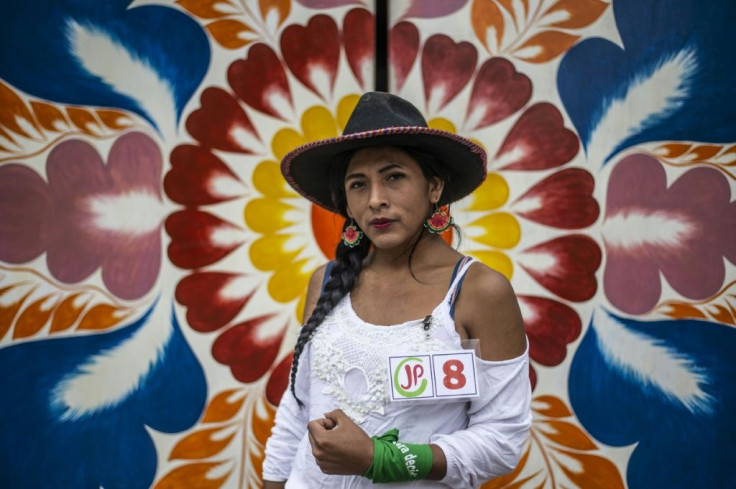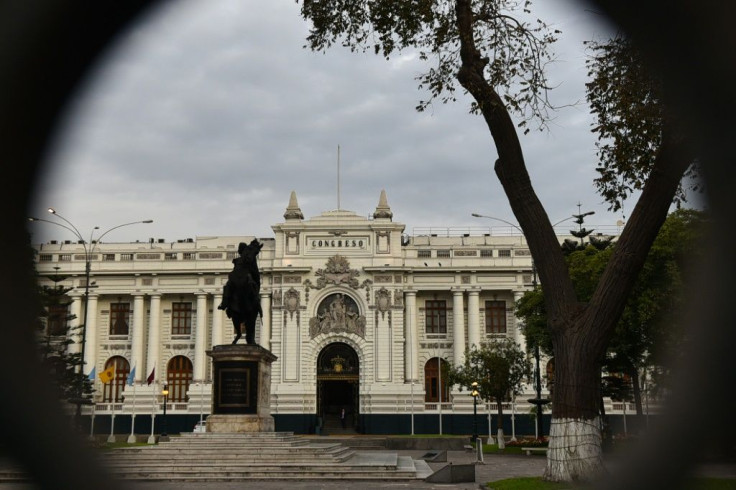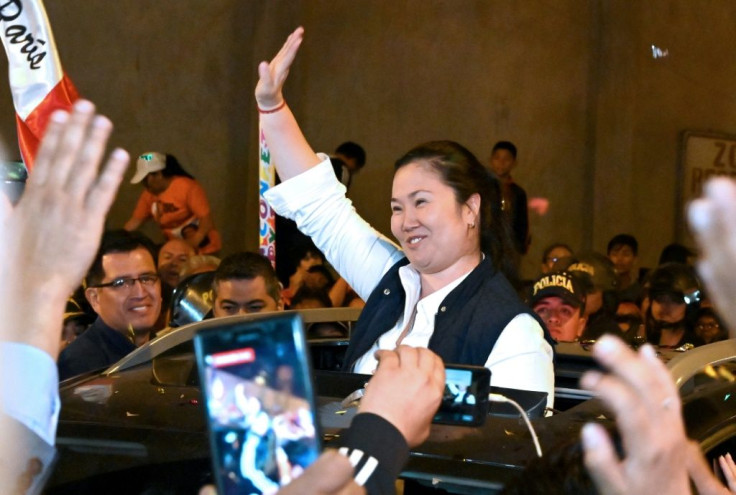Peru Opposition Crushed At Legislative Elections

Peru's Keiko Fujimori-led opposition suffered a crushing blow at legislative elections, losing dozens of seats in the Congress it had dominated since 2016, according to early results Monday.
A rapid count by the Ipsos research firm showed Fujimori's Popular Force party's share of the vote has dropped from 36.3 percent in 2016 to just 6.9 percent.
Having dominated Congress with 73 of the 130 seats, it is now set to be only the sixth largest party with fewer than 20 seats, according to projections.
The first official results for Lima, which elects almost a third of the legislators, look set to confirm the drubbing, with Popular Force in fifth place on 7.33 percent. The centrist Partido Morado was leading with 14.42 percent, followed by right-wing Podemos Peru and the centrist Popular Action both on 12.69 percent.
"It's the collapse of Fujimorism, it's a very deep fall, a very hard blow," analyst Luis Benavente, director of the Vox Populi consultancy, told AFP.
"We don't know how many legislators they will have, but the first projections indicate it will be a 10th of their 2016" result, added analyst Fernando Rospigliosi.
It's a big victory for center-right President Martin Vizcarra, who dissolved parliament in September and called snap legislative elections in a bid to end a political crisis between the executive and Congress.
The elections have produced a hung parliament dominated by centrist parties more likely to approve of Vizcarra's anti-corruption reforms previously blocked by Popular Force.

The largest single party is set to be Popular Action with 10.1 percent of the vote, according to Ipsos.
After the Christian fundamentalist party Frepap (8.8 percent) come Podemos Peru (8.25), center-right Progress Alliance (8.0) and the centrist Partido Morado (7.7).
Vizcarra said he wants to establish with the new Congress "a responsible, mature relationship that seeks a consensus that benefits Peru."

Fujimori's Popular Force looks to have paid for its leader's implication in the sprawling Odebrecht corruption scandal.
Fujimori is accused of accepting $1.2 million in illicit party funding from Brazilian construction giant Odebrecht for her unsuccessful 2011 presidential election campaign.
Odebrecht has admitted to paying at least $29 million to Peruvian officials since 2004, and bribing four former Peruvian presidents.
The scandal destroyed the popularity of the 44-year-old daughter of jailed former president Alberto Fujimori (1990-2000).

She has already spent 13 months in pre-trial detention before being released in November, and on Tuesday faces a judge's decision on whether to send her back to jail.
It wasn't just Popular Force losing badly, but also its main ally, the social-democratic APRA of former president Alan Garcia, who committed suicide in April as police turned up at his home to arrest him in a corruption case related to the Odebrecht scandal.
APRA is Peru's oldest political party but with only 2.6 percent of the vote, according to Ipsos, it "will lose its party registration and be left out of Congress," Benavente told AFP.
There were more than 2,300 candidates representing 21 parties in Sunday's election.
The vote -- the first time legislative elections have been held separately from presidential voting -- came 15 months ahead of the next general election.
It came about after Vizcarra dissolved Congress on September 30, a move that was widely popular amongst Peru's 25 million population.
The opposition accused him of a "coup d'etat" and swore in Vice President Mercedes Araoz as "acting president" but she resigned the following day.
The opposition took its case to the constitutional court, which ruled in Vizcarra's favor.
Demonstrators took to the streets to support Vizcarra and his anti-corruption push.
Polls showed 90 percent support for the president's daring move.
Vizcarra doesn't have a party himself but before the vote, political analyst Augusto Alvarez told AFP that the president would "achieve a more bearable relationship with the centrist parties that achieve a majority in Congress" than he had done with Fujimori.
However, Alvarez had expected Popular Force to remain "a relevant force," which no longer appears the case.
The new lawmakers will sit for only 16 months until the April 2021 general election, and a new president is due to take office three months after that.
Neither Vizcarra nor any of the new lawmakers will be eligible for re-election in 2021, so only 16 sought to stand again.
The election was observed by the European Union and the Organization of American States.
© Copyright AFP 2024. All rights reserved.



















